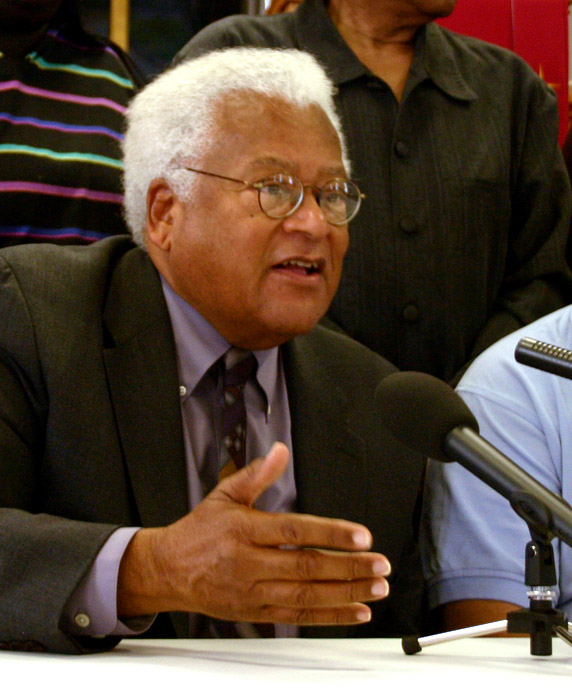Rev. James Lawson Jr., a foundational figure in the Civil Rights Movement and an original Freedom Rider, passed away at 95, his family announced on Monday. Lawson, who dedicated his life to advocating nonviolent protest, died on Sunday in Los Angeles following a short illness.
Lawson’s commitment to nonviolence and civil rights profoundly impacted the movement. He was a close adviser to Rev. Martin Luther King Jr., who hailed him as “the leading theorist and strategist of nonviolence in the world.” During a three-year stay in India, Lawson’s studies of Mohandas K. Gandhi’s independence movement significantly influenced his understanding of nonviolent resistance.
Born in Uniontown, Pennsylvania, on September 22, 1928, and raised in Massillon, Ohio, Lawson’s early experiences with racism and the contrasting influences of his parents—his father, an itinerant African Methodist Episcopal minister, and his Jamaican-born mother, who believed in resolving conflicts peacefully—shaped his lifelong commitment to nonviolent resistance. At age 10, an incident where he slapped a white child who had insulted him was a pivotal moment. His mother’s admonishment that love and intelligence were stronger than hate left an indelible mark on him.

Lawson’s activism began in earnest as an Ohio Oberlin College student. After spending 13 months in prison for refusing to register for the draft during the Korean War, he met King in 1957. The two young pastors quickly bonded over their admiration for Gandhi’s ideas. King urged Lawson to use these ideas in the American South due to his firsthand experiences.
In 1960, Lawson orchestrated sit-ins that led to the desegregation of public accommodations in Nashville, one of the first major Southern cities to do so. His workshops trained activists, including future leaders like John Lewis, Marion S. Barry, Diane Nash, James Bevel, and Bernard Lafayette, to withstand violent reactions from white authorities.
Lawson’s activism placed him at the heart of several key events in the Civil Rights Movement. In 1961, he was one of the first Freedom Riders arrested in Jackson, Mississippi, for attempting to integrate interstate bus and train travel. During the 1965 “Bloody Sunday” march in Selma, Alabama, he was among the protesters beaten by authorities at the Edmund Pettus Bridge. In 1968, while pastoring in Memphis, he persuaded King to support the city’s striking sanitation workers. King’s assassination followed shortly after, and years later, Lawson visited James Earl Ray, King’s convicted assassin, in prison. Lawson ministered to Ray and publicly supported theories suggesting Ray had been framed.
Throughout his career, Lawson remained steadfast in his commitment to nonviolence, even as segments of the Black community shifted towards militancy and separatism. His activism extended beyond civil rights to include opposition to the Vietnam War, support for labor unions, gay rights, expanded abortion access, and liberalized immigration policies.
In 1974, Lawson became the senior pastor of Holman United Methodist Church in Los Angeles, where he served until his retirement in 1999. His teachings continued through his role as a visiting professor at Vanderbilt University, which had expelled him 46 years earlier for his activism. Vanderbilt invited him back in 2006 and requested his papers for their archives.
Rev. Lawson is survived by his wife, Dorothy Wood, his son, John C. Lawson II, a brother, and three grandchildren. His son, C. Seth Lawson, died in 2019. His life and work are a testament to the nonviolent resistance’s power and the ongoing struggle for social justice.
“If Dr. King was our modern-day Christ, James Lawson was John the Baptist,” Rev. Mark Thompson stated.




